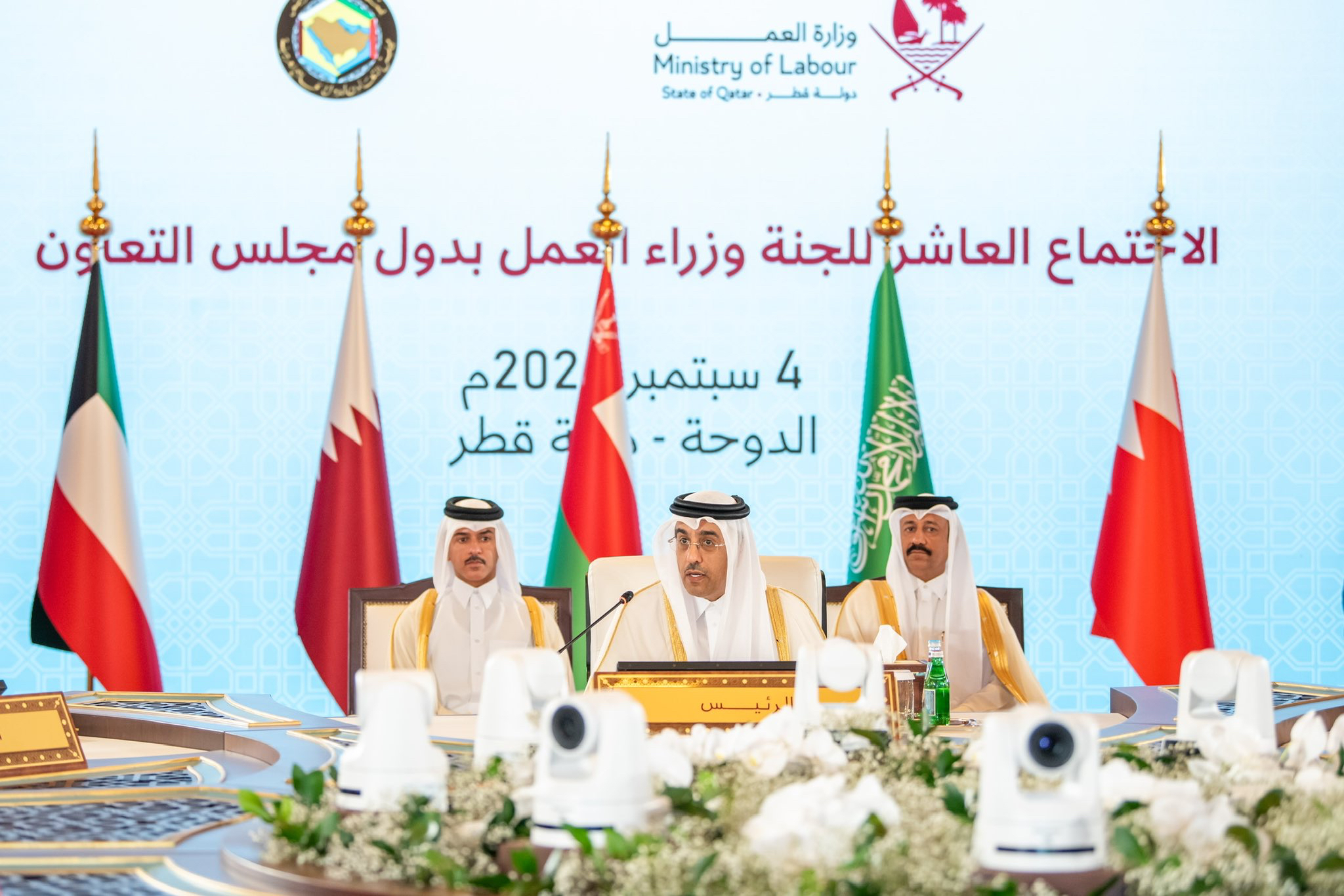Wednesday’s session highlighted the issue of human trafficking in the region and legal framework concerning women in the workplace.
The tenth meeting of the Committee of Labour Ministers of the Gulf Cooperation Council (GCC) convened in Doha, focusing on tackling the challenges that hamper the region’s labour markets.
The Wednesday session was chaired by Ali bin Samikh Al Marri, the Qatari Minister of Labour.
Also in attendance was the Secretary General of the GCC, Jassim bin Mohammed Al-Budaiwi, and the region’s ministers and representatives within the civil service, labour and social affairs sectors. Al-Budaiwi was received by Sheikh Mohammed bin Abdulrahman Al Thani, Qatar’s premier and foreign affairs minister.
Topics of discussion included those on wage protection, alignment with international labour standards such as those set by the International Labour Organization, and various aspects of employee social welfare.
During the meeting, Al Marri highlighted the issue of human trafficking, forced and child labour in the region. He also underscored the importance of policies that bolster social programmes and preserve workers’ rights in the private sector.
In the lead-up to the 2022 FIFA World Cup, a report detailed how Qatar launched a series of initiatives aimed at raising awareness about human trafficking. For instance, the Qatari National Human Rights Committee partnered with the Supreme Committee for Delivery and Legacy to organise training sessions for hospitality professionals at 11 hotels across Doha, equipping them to identify and prevent such crimes.
“The State of Qatar has considered the crimes of human trafficking to be heinous violations of human rights, as it robs a person of his freedom and erodes his dignity,” the Qatari labour minister said in a statement at the time.
Wednesday’s session also reviewed the Gulf’s legal frameworks regarding women in the workplace and maternity considerations.
In Qatar, women in governmental, mixed and private sector positions form just under half of the workforce, the Qatar Public Works Authority reports.
Qatari Law No. 14 of 2004 mandates that female employees who have worked for a company for at least a year are entitled to fifty days of maternity leave with full pay. This leave covers both prenatal and postnatal periods, with the postnatal period being no less than thirty-five days, provided that a medical report from a licensed physician is submitted.
The legislation adds that employers are prohibited from terminating female employees’ contracts due to either marriage or maternity leave.
On a separate level, the Civil Services and Government Development Bureau (CGB) announced that the Qatari Council of Ministers had approved a framework for remote working.
“[This] will allow employees to reconcile their work and families, and [it] works to empower priority groups, such as working mothers and people with disabilities,” the CGB said in its announcement.







